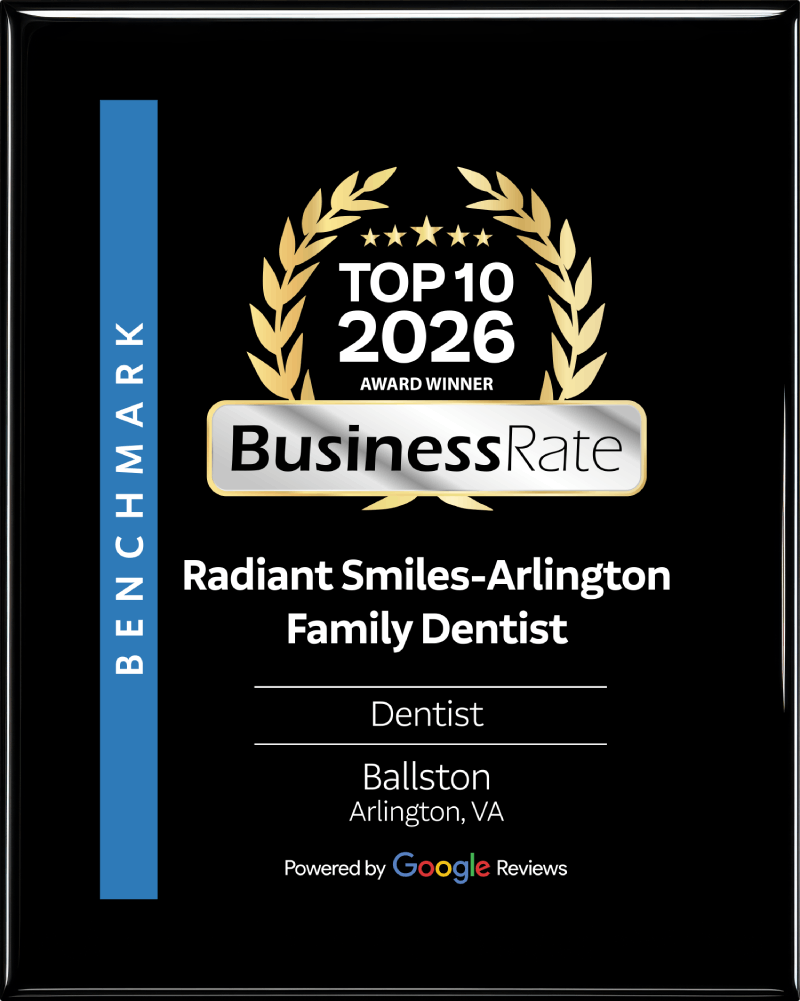
Over 40% of adults over 65 experience dry mouth, yet most Arlington seniors dismiss this uncomfortable condition as a normal part of aging. The truth is far more concerning: untreated dry mouth dramatically increases your risk of tooth decay, gum disease, oral infections, and can even impact your ability to speak, eat, and maintain proper nutrition. What feels like a minor inconvenience today could evolve into a cascade of serious dental and health complications tomorrow.
Dry mouth, medically known as xerostomia, occurs when your salivary glands fail to produce adequate saliva or when the quality of your saliva changes significantly. This condition affects millions of seniors nationwide, with prevalence rates climbing steadily as the population ages. For Arlington’s growing senior community, understanding the causes, consequences, and treatment options for dry mouth has never been more critical.
The Multifaceted Causes Behind Senior Dry Mouth
The development of dry mouth in older adults rarely stems from a single cause. Instead, it typically results from a complex interplay of factors that become more prevalent with age, creating a perfect storm for salivary dysfunction.
- Medication-Induced Dry Mouth: The most common culprit behind senior dry mouth is prescription medication use. Over 400 commonly prescribed medications list dry mouth as a side effect, and seniors typically take multiple medications simultaneously. Antidepressants, antihistamines, blood pressure medications, and pain relievers all significantly reduce saliva production through various mechanisms.
- Chronic Health Conditions: Diabetes, autoimmune disorders like Sjögren’s syndrome, and neurological conditions frequently contribute to dry mouth symptoms. These conditions can damage salivary glands directly or interfere with the nervous system signals that regulate saliva production.
- Cancer Treatments: Radiation therapy to the head and neck region can permanently damage salivary glands, while chemotherapy medications often cause temporary but severe dry mouth symptoms. Many cancer survivors continue to struggle with chronic dry mouth long after their treatments conclude.
- Age-Related Changes: While aging itself doesn’t directly cause dry mouth, the cumulative effects of years of medication use, chronic diseases, and lifestyle factors create an environment where dry mouth becomes increasingly likely.
The Dangerous Domino Effect of Untreated Dry Mouth
Saliva serves as your mouth’s natural defense system, neutralizing acids, washing away food particles, and providing antimicrobial protection. When saliva production decreases significantly, your oral environment becomes vulnerable to a cascade of problems that can quickly spiral out of control.
- Accelerated Tooth Decay: Without adequate saliva to neutralize acids and remineralize teeth, decay-causing bacteria thrive in your mouth. Root caries, particularly problematic for seniors, develop rapidly in the absence of saliva’s protective effects. Many seniors with dry mouth experience multiple new cavities within months of symptom onset.
- Severe Gum Disease: Reduced saliva flow allows harmful bacteria to accumulate along the gum line, leading to inflammation, infection, and eventual tissue destruction. Advanced periodontal disease in seniors with dry mouth often progresses more rapidly and responds less favorably to traditional treatments.
- Oral Infections: Fungal infections, particularly oral thrush, become common in seniors with chronic dry mouth. The mouth’s natural ability to maintain a healthy bacterial balance becomes compromised, allowing opportunistic pathogens to flourish.
- Difficulty with Daily Functions: Dry mouth makes speaking, chewing, and swallowing increasingly difficult. Many seniors begin avoiding certain foods or social situations due to embarrassment about their symptoms, potentially leading to nutritional deficiencies and social isolation.
Recognizing the Warning Signs Before It’s Too Late
Early detection of dry mouth symptoms allows for prompt intervention before serious complications develop. Many seniors experience gradual onset of symptoms and may not recognize the severity of their condition until significant damage has occurred.
- Physical Symptoms: A persistently dry, sticky feeling in your mouth represents the most obvious sign. Your tongue may appear red and rough, and you might notice increased thirst, particularly at night. Bad breath that doesn’t improve with regular brushing often accompanies dry mouth conditions.
- Functional Difficulties: Trouble swallowing dry foods, difficulty speaking for extended periods, and changes in taste perception all indicate advancing dry mouth. Many seniors notice they need to drink more water during meals or wake up frequently at night due to mouth dryness.
- Dental Changes: Rapid development of new cavities, especially along the gum line, often signals dry mouth-related problems. Gum irritation, oral sores that heal slowly, and increased sensitivity to spicy or acidic foods also suggest salivary dysfunction.
- Denture Problems: Seniors with dentures may experience increased difficulty with retention, comfort, and oral sores if dry mouth develops. Saliva plays a crucial role in denture stability and comfort.
Advanced Treatment Strategies for Dry Mouth Management
Effective dry mouth treatment requires a comprehensive approach that addresses underlying causes while providing symptomatic relief. The most successful treatment plans combine multiple strategies tailored to each patient’s specific needs and circumstances.
- Medication Review and Adjustment: Working with your physician and Dr. Chandra to review your current medications can identify opportunities to reduce dry mouth-causing drugs. Sometimes alternative medications with fewer oral side effects are available, or dosage adjustments can minimize symptoms while maintaining therapeutic benefits.
- Prescription Interventions: Several prescription medications can stimulate saliva production in appropriate candidates. Pilocarpine and cevimeline have shown effectiveness in increasing saliva flow, though they require careful monitoring due to potential side effects.
- Professional Fluoride Treatments: High-concentration fluoride applications and prescription fluoride products provide enhanced protection against decay in dry mouth patients. These treatments must be customized based on individual risk factors and administered under professional supervision.
- Saliva Substitutes and Stimulants: Modern artificial saliva products more closely mimic natural saliva’s properties than older formulations. Sugar-free gums and lozenges containing xylitol can stimulate natural saliva production while providing antimicrobial benefits.
Daily Management Techniques That Actually Work
Beyond professional treatments, several evidence-based self-care strategies can significantly improve dry mouth symptoms and prevent complications. The key lies in consistent application of multiple approaches rather than relying on single solutions.
- Optimal Hydration Strategies: Frequent small sips of water throughout the day prove more effective than drinking large amounts at once. Room temperature water is generally better tolerated than cold water, and avoiding caffeinated or alcoholic beverages prevents further dehydration.
- Dietary Modifications: Choosing moist, soft foods and avoiding dry, crumbly items reduces oral discomfort. Adding gravies, sauces, or broths to meals increases moisture content. Limiting spicy, acidic, or salty foods prevents additional irritation to already sensitive oral tissues.
- Environmental Adjustments: Using a humidifier, especially at night, helps maintain moisture in the air you breathe. Breathing through your nose rather than your mouth when possible reduces moisture loss from oral tissues.
- Oral Hygiene Adaptations: Alcohol-free mouthwashes prevent additional drying, while gentle, frequent brushing with fluoride toothpaste maintains oral health without causing irritation. Some seniors benefit from using a soft-bristled electric toothbrush to ensure thorough cleaning without excessive pressure.
The Critical Role of Professional Monitoring
Seniors with dry mouth require more frequent dental monitoring than those with normal saliva flow. Regular professional assessments allow for early detection of complications and prompt adjustment of treatment strategies before serious problems develop.
Professional cleanings may need to occur more frequently than the standard six-month interval, as plaque and bacteria accumulate more rapidly in dry mouth conditions. Dr. Chandra can assess your individual risk factors and recommend an appropriate monitoring schedule based on your specific needs.
Ongoing evaluation of treatment effectiveness ensures that your management plan continues to meet your changing needs. As medications change or health conditions evolve, dry mouth treatment strategies may require modification to maintain optimal results.
Innovative Solutions for Arlington’s Senior Community
Recent advances in dry mouth management offer new hope for seniors struggling with this condition. From prescription medications that stimulate saliva production to advanced oral care products specifically designed for dry mouth sufferers, treatment options continue to expand.
Cutting-edge research into salivary gland regeneration and stem cell therapy shows promise for the future, though these treatments remain experimental. Current evidence-based approaches, when properly implemented, can provide significant relief for most seniors with dry mouth.
The integration of dental care with overall medical management has proven particularly effective for seniors with multiple health conditions. Collaborative care between Dr. Chandra and your other healthcare providers ensures that dry mouth treatment complements rather than conflicts with your overall health management plan.
Taking Action Before It’s Too Late
Dry mouth represents far more than a minor inconvenience for Arlington’s senior population. Left untreated, this condition can rapidly progress to serious complications that significantly impact quality of life and overall health. The good news is that effective treatments exist, and early intervention can prevent most serious complications.
If you’re experiencing persistent dry mouth symptoms, waiting for improvement is not an option. The longer dry mouth persists, the more likely you are to develop irreversible dental damage and health complications that could have been prevented with prompt treatment.
Dr. Surbhi Chandra and the team at Radiant Smiles understand the unique challenges that dry mouth presents for Arlington seniors. Their comprehensive approach to geriatric dental care includes specialized dry mouth management strategies designed to restore comfort and protect your oral health. Don’t let dry mouth rob you of the quality of life you deserve—schedule your consultation today to begin your journey toward relief and protection.
Posted on behalf of
3801 N Fairfax Dr Suite 25
Arlington, VA 22203
Phone: (703) 528-0444
FAX: (703) 516-0262
Email: info@theradiantsmiles.com







